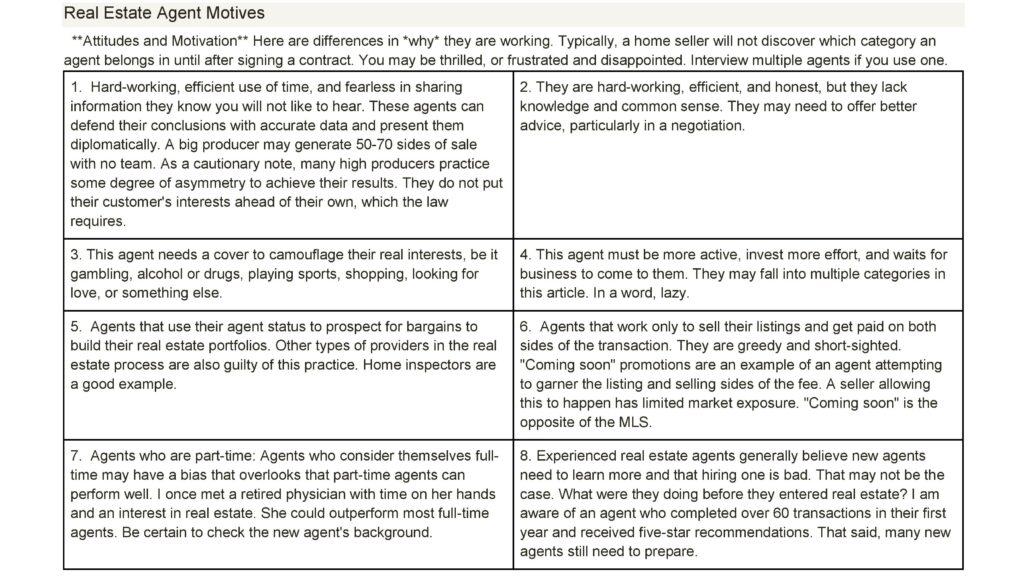
Dear Monty: I have bought and sold several homes as a relocating employee. I have always been curious about how real estate companies establish commissions for their agents. My experiences have been from poor to good. I wonder if how they are paid has an effect on their production. Can you explain the system?
Monty’s Answer: The system that the majority of real estate companies that rank high in their local markets use a system that is over a 100 years old. The vast majority of real estate agents are independent contractors. Commissions, and how they are earned is an important issue. Some real estate companies main recruiting efforts is by poaching agents. Other companies prefer to contract with new recruits. The way commissions are shared is different with most companies. The one common factor is all companies recruit if they want to grow. That is because all agents produce revenue, and some produce a lot more than others.
Eight factors that affect agent production
- Diverse agent pool: The motives image shows a wide range of agent types, from highly motivated and customer-focused (Type 1) to those who are lazy or have ulterior motives (Types 3, 4, 5). Companies need to constantly recruit to attract or find those rare Type 1 agents while also maintaining a large enough pool to generate revenue. How a rookie will develop is difficult to predict.
- High turnover: Many agents, especially those falling into categories 3, 4, and 6, may not last long in the industry. This necessitates ongoing recruitment to replace departing agents.
- Performance variability: Production shows a wide range of performance levels. This aligns with the diverse motivations outlined in the image. According the National Association of Realtors (NAR), the median number of annual agent units is ten transactions.
- Commission structure: As mentioned earlier, newer agents typically receive lower commission splits. This benefits the company financially, especially when considering that many agents (Types 2, 3, 4, and potentially 7 and 8) are unlikely to be generate significant revenue.
- Revenue potential: A larger number of agents, even if many are part-time (Type 7) or new (Type 8), allows the company to gain revenue.
- Potential for growth: While experienced agents may be skeptical of new agents (Type 8), the image notes that some new agents can be highly successful. Companies recruit to find these potential stars. They achieve a high percentage of the commission, but volume justifies it.
- Motive screening: Most companies try to screen, but no applicant ever admitted to being incompetent, dishonest, or lazy. This is because they do not see those red flags in themselves.
- Offsetting self-interested behaviors: This is handled after they have been working with customers. Customer complaints, zero or little production over time may cause a termination. The only way the company
New talent to grow a balanced, productive workforce while managing the turnover is never ending. Because the company knows it cannot accurately predict which new recruits will grow and do well, struggling agents are given time to produce results by practicing on real customers. The best way for consumers to protect themselves is to interview multiple agents. Yes, it takes extra effort, but your home is likely your most significant investment. The only two options are to continue to stay put or do it yourself.


